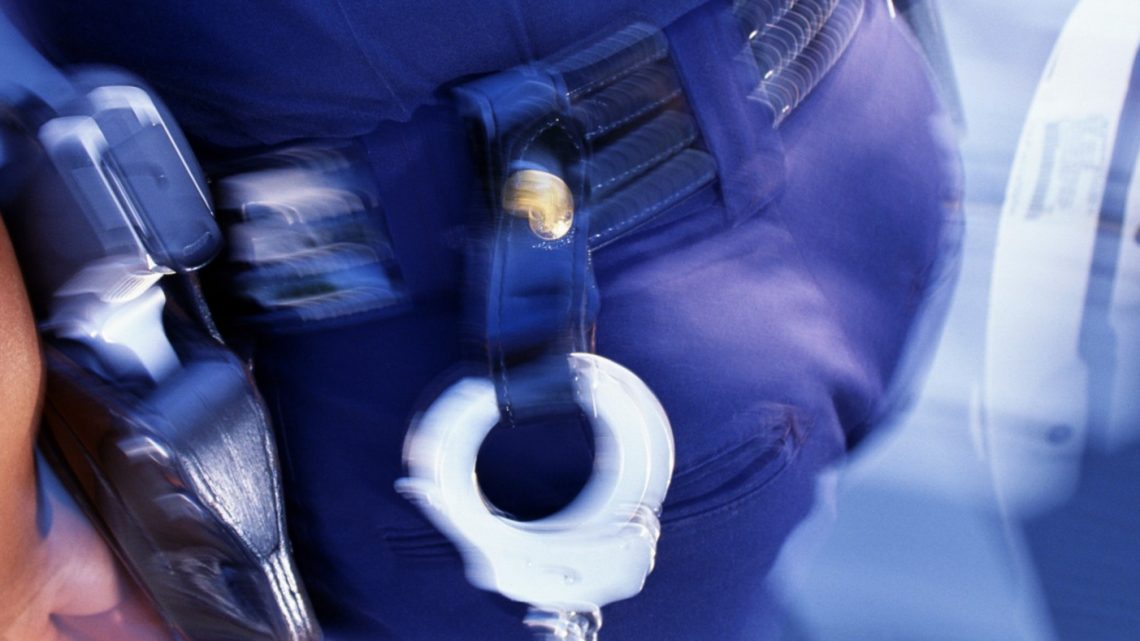The year was 1983. My kids spotted a police car as we pulled into the parking lot of a pharmacy. Lights flashing, the cruiser was straddling the curb outside the store. As we walked inside, a man was being arrested.
My kids had never seen anything like this, except in a video. But this was live action.
“Daddy! Is he going to jail?”
“It seems like he will.”
Now the kids really got excited. “What did he do?”
“I guess they caught him stealing something.”
Normally I’m a proponent of “reap what you sow, learn from your choices.” But something about this guy touched my heart. Maybe his slumping shoulders. Seized with unexpected boldness, I ventured over and proceeded to interfere with justice through some undeserved intercession.
Outrageous advocacy
Only 15 years later, after becoming a police chaplain, did I realize how outrageous was my breech of protocol. Police risk their lives when arresting a suspect, who might be armed. Criminal comrades might be lurking nearby, ready to jump the officer. But I was just a foolish young dad, so the officer spared me from having myself arrested in the process of trying to keep the thief from being taken into custody.
And so, courageous and naive, I told the officer: “I’m really sorry you have to arrest this man.”
The cop turned to me and stared. “Yeah, we’re sorry too.”
Pointing to the suspect, I suggested: “I think this man also is sorry. He looks that way to me.”
The officer frowned. Naively ignoring that warning, I addressed the thief: “Aren’t you sorry you stole that stuff?”
“I sure am, man.”
“See, he’s sorry,” I pled hopefully. “I’ll bet he’ll never shoplift anything again.”
“He’s right! I’ll never steal anything again as long as I live!”
Yeah, right, the store manager frowned sarcastically.
“Look,” ordered the officer, regaining control of the situation. “You’re obstructing justice here,” he declared, righteously resisting the audacity of grace.
I apologized. His voice softened. “I’m sure you mean well, sir, but I’ve got a job to do for this man,” nodding toward the manager. “He’s the one pressing charges.”
I saw my opportunity. “Say, would you drop charges if I take responsibility for what this guy did? Let me pay for whatever he stole.”
The manager scowled, a swirl of irritation, consternation, and amazement. “This store has a system-wide policy of arresting all shoplifters.” Then he paused and shrugged. “But . . . I guess we can make an exception, if you’re willing to pay for the merchandise.”
I pulled out my wallet. “So how much do I owe you?”
“Let’s make it $7.”
I handed over a five and two ones, and the manager took custody of the ransom.
“Can he go now?” I petitioned the officer.
“Well, if the manager is dropping charges, I’ve got no grounds to arrest him.”
Case closed
The handcuffs came off and I triumphantly headed for the exit, trailed by my kids and our new friend. As our circus of grace paraded past onlooking customers and employees, some seemed amused, others amazed.
Outside, the pardoned shoplifter stopped and turned toward me. “Hey, man! I can’t believe what you did in there.”
I told him God had done the same thing for him with his sins recorded in heaven—a much more serious situation than charges against him here on earth.
He didn’t seem captivated by the grace that set him free. He just wanted to evacuate his crime zone.
With a grateful grin and final wave, he dashed around the corner into a trash-strewn alley. Watching in wonder, the policeman ducked into his cruiser, silenced his flashing lights, and thoughtfully rolled out of the parking lot.
Maybe the whole thing was for him.
This is excerpted from my book, God Was There: True stories of a police chaplain (Pacific Press, 2009)










